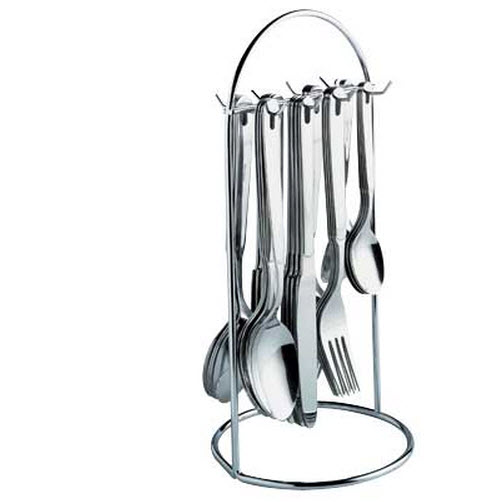THE GATHERING 2013 : LET’S BRING THEM HOME
Oct 14th, 2012 by Conor McCabe
Oct 14th, 2012 by Conor McCabe
Oct 14th, 2012 by Conor McCabe
Oct 11th, 2012 by Donagh

Just to announce an exciting new Dublin Opinion competition open to everyone who thinks they can provide an answer. A smashing Argos cutlery set (see picture of the sparkling lovelies above) will go to the first person who can come up with an alternative to the concept of lobbying to explain how power and political influence work in Irish society.
But first, before you provide your alternative to “The Lobby” as an explanation, please read these two extracts from recent reports in the Irish Times.
“The Government’s eventual position on both issues dovetailed exactly with that put forward by the financial industry’s lobbyists, who supplied position and research papers; suggested draft legislation; and commissioned consultants’ reports.”
Published Monday 8th of Oct.
“So a majority of farmers stand to gain from the changes, but they’re mostly in places like Cavan, Monaghan, Donegal, Sligo, Leitrim, Mayo, Roscommon, Longford, Clare and Galway. More recently, Minister for Agriculture Simon Coveney gave the Dáil even starker figures: “Under a national flat rate, although the overall allocation to Ireland would not change, around 76,000 Irish farmers would gain an average of 86 per cent on their current payments, while around 57,000 would lose an average of 33 per cent.”
Yet Coveney is standing with the IFA in opposing changes that would benefit a majority of farmers.Why? Because the IFA is a brilliant political lobby – so good that even TDs from counties which stand to benefit from the changes keep their mouths shut.”
Published on Tues 9th of Oct.
Answers on a postcard to the usual address…..
Oct 11th, 2012 by Conor McCabe
It’s one thing for the Irish monied class to say that the ECB forced them into the 2008 bank guarantee, it’s another for progressives/leftists to fall for it. From Der SpiegEe, 2 October 2008:
“Mention of the plan infuriated many across the EU who feel that the action will unfairly draw money away from other banks and toward the presumably safer Irish institutions.
As an alternative to such unilateral responses, French Finance Minister Christine Lagarde suggested the creation of a “European safety net.” Fearing that it would be forced to make the biggest contributions to any such mechanism, Germany responded harshly to the suggestion, with Chancellor Angela Merkel saying that Germany “cannot and will not issue a blank check for all banks, regardless of whether they behave in a responsible manner or not.”
Full article here.
Oct 7th, 2012 by Conor McCabe
The Advertising Standards Authority (ASA) on 03/10/2012 announced that Channel 4’s “Bigger Fatter Gypsier” billboard advertising campaign was irresponsible; endorsed prejudice against Gypsies and Travellers; was guilty of depicting a child in a sexualised way; and was likely to have caused mental and moral harm to children.The Irish Traveller Movement in Britain welcomes this ground-breaking and pioneering decision. David Enright of Howe & Co, solicitors and Yvonne MacNamara, CEO of ITMB give their reactions to the verdict at a Press Conference at 4 Millbank, Westminster (full transcript).
Oct 7th, 2012 by Conor McCabe
Oct 6th, 2012 by Conor McCabe
Oct 4th, 2012 by Conor McCabe
I’m doing up a piece on Gombeenism for Rabble at the moment and am re-reading this article as part of it.
In it, Higgins and Gibbon explain quite clearly the class nature of farm size and cattle production in Ireland in the nineteenth and twentieth century. I use a graph of this system in talks I give on the development of the Irish economy (as above), and just thought it’d be good to post the article by Higgins/Gibbons from 1982 as it kind of highlights how economic class relations in Ireland was once part of the historical debate. Can’t really say that’s the case now, as class today is used as a euphemism for poverty - it’s seen in social status terms not as something embodied within the actual laws of the State.
In Ireland’s case, with independence the class of grazier-shopkeepers are part of the legislative class and - no surprise - they legislate in their interests.

Wednesday, 3 October at 7.00pm
The National Library of Ireland
Kildare Street, Dublin 2.
‘Dublin in a revolutionary decade: 1913 – 1923’
Pádraig Yeates, author of ‘A City in Turmoil: Dublin 1919-21‘ will uncover unknown and neglected aspects of the Irish Revolution.
This lecture is the first of a new monthly lecture series entitled ‘BiblioFiles’. The lectures will provide a platform for writers, academics and others who have used the NLI’s facilities to talk about the research and other work they have carried out here.
All welcome. No booking required.
Oct 1st, 2012 by Conor McCabe